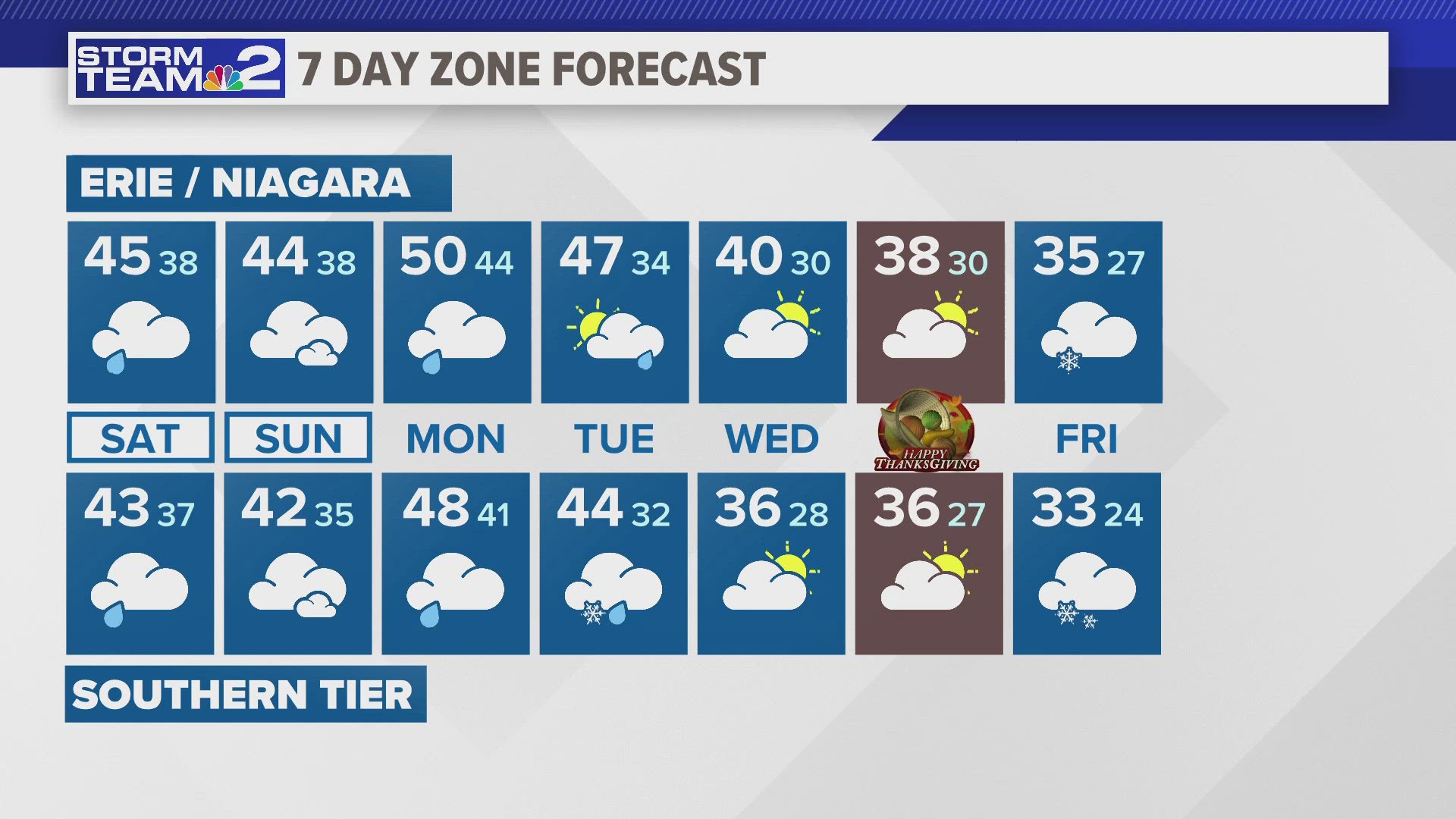BUFFALO, N.Y. — Buffalo was on pace to break the record for warmest February of all-time, but the chilly extra day ruined it!
Leap Day gave us a wintry end to February, and dropped our monthly average temperatures enough to put us in a statistical tie with 2017. Our average, the February temperature for 2017 and for 2024, according to the National Weather Service, worked out to be 34.8F
Our third warmest February was in 1998, with an average temperature of 34.1F.
To find the average monthly temperature, you can find the mean of all the daily highs, then find the mean of all the daily lows, and find the average of those two numbers. The computation is rounded to the tenth of a degree. In hundreds, our average temperature in February of 2024 was 34.78F.
The meteorological winter (December, January and February) this year made second warmest on record in 150 years, and warmest in 80 years. December was also warmer than normal. You likely remember our green Christmas and scarcity of holiday snow. Last December, was the second warmest in Buffalo history, trailing only 2015 remarkably mild December.
January 2024, by far our snowiest month (more snow than the rest of winter season combined), did keep our streak going. While not as toasty as November, December or February, our January of 2024 was another month of above average temperatures in Buffalo.
Climatologically, a positive variation of the ENSO (El Nino Southern Oscillation) was the primary driver of warmer than average winter temperatures over most of the United States east of the Rockies. The naturally occurring variance of warm or cold oceanic surface temperatures of the Pacific Ocean near the equator is notorious for throwing North American weather into unusual patterns. Scientists are forecasting a neutral El Nino / La Nina signal for spring, but are warning of a possible negative ENSO index (La Nina) for summer. La Nina summers historically have caused an increase in Atlantic tropical storm activity.
Back in WNY, our March is coming in like a lamb. Above average temperatures for the first week of March are a lock. And Monday, StormTeam2 is calling for record highs (upper 60s) in Buffalo.
RELATED VIDEO:



